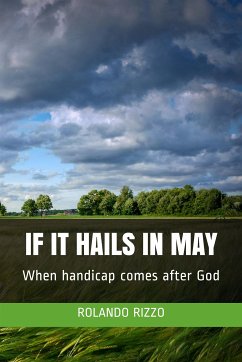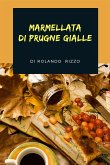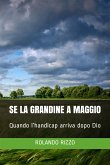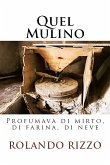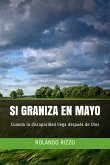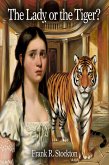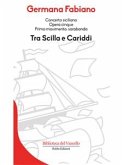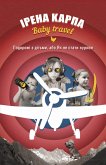The title of Rolando Rizzo's novel already contains in its conciseness the essential design of its contents.
Life in its beauty sometimes resembles a green expanse of fallow wheat that promises a rich summer harvest, but an hour’s violent hailstorm is enough for it to become desperate desolation.
There are two fundamental types of handicap: one caused by narcissism and irresponsibility and the other that belongs to the chromosome lottery. Both often devastate happy families, or in any case force them to remodulate their whole existential path sometimes with heroic and, otherwise, desolating results.
In Rolando Rizzo's novel, both types of handicap plummet like lightning upon a family and its wealthy and strongly religious community, breaking down fronts, clichés, exalting appearances, to reveal the real substance we are made of and the basic choices everyone sooner or later has to deal with when "hail falls in May".
The novel speaks of solidarity and betrayal. Of lives that interweave, that are lost, that are redeemed, that in being irreconcilable are all reconciled, some to trace new seasons of love and freedom.
The author
Rolando Rizzo was born in 1944 in Rossano Calabro.
He was raised by a very cultured illiterate father, a very sweet authoritarian and violent narrator, unwell, he discovered the Bible at forty years old and adored it, but read the New Testament in the light of the old, he was disillusioned with humanity; and in love with women who he esteemed if they submitted.
Rolando Rizzo spent his first six years with a mother who was a talented, feminist, ante litteram, rebellious and independent, who rejected without question any form of male submission, domination and violence so she soon left the conjugal roof, the village and her son to eclipse herself in the eternal city.
The adolescent Rolando stayed with his father until he was fourteen and was then accepted by the Adventist Institute in Florence where he earned a living working as a farm boy and dishwasher up to the age of twenty-one. He was in love with football and cinema. He devoured Mickey Mouse and Tolstoy, The Little Ranger and Malaparte, the Guerin Sportivo and especially the Bible.
He wrote his first piece on the students' “mural newspaper” of Villa Aurora, and since then has never stopped...He graduated in Theology in 1972. He was an Adventist Pastor, youth animator, lecturer, author of theological and nonfictional publications, he devoured novels. In 1990 he returned as Professor of Practical Theology to the Institute he attended in 1958, and in 2008 he wrote his first novel Il Mulino sul Colognati defined by the director of the editorial Leggere Tutti as "an unexpected masterpiece".
Followed by Il Viaggiatore, Il terzo treno, Cieli Tamarri, Il Nulla e l’Incanto, Il principino scomparso, Marmellata di prugne gialle, La viola e i gigli della campagna, If it hails in May. When handicap comes after God.
Life in its beauty sometimes resembles a green expanse of fallow wheat that promises a rich summer harvest, but an hour’s violent hailstorm is enough for it to become desperate desolation.
There are two fundamental types of handicap: one caused by narcissism and irresponsibility and the other that belongs to the chromosome lottery. Both often devastate happy families, or in any case force them to remodulate their whole existential path sometimes with heroic and, otherwise, desolating results.
In Rolando Rizzo's novel, both types of handicap plummet like lightning upon a family and its wealthy and strongly religious community, breaking down fronts, clichés, exalting appearances, to reveal the real substance we are made of and the basic choices everyone sooner or later has to deal with when "hail falls in May".
The novel speaks of solidarity and betrayal. Of lives that interweave, that are lost, that are redeemed, that in being irreconcilable are all reconciled, some to trace new seasons of love and freedom.
The author
Rolando Rizzo was born in 1944 in Rossano Calabro.
He was raised by a very cultured illiterate father, a very sweet authoritarian and violent narrator, unwell, he discovered the Bible at forty years old and adored it, but read the New Testament in the light of the old, he was disillusioned with humanity; and in love with women who he esteemed if they submitted.
Rolando Rizzo spent his first six years with a mother who was a talented, feminist, ante litteram, rebellious and independent, who rejected without question any form of male submission, domination and violence so she soon left the conjugal roof, the village and her son to eclipse herself in the eternal city.
The adolescent Rolando stayed with his father until he was fourteen and was then accepted by the Adventist Institute in Florence where he earned a living working as a farm boy and dishwasher up to the age of twenty-one. He was in love with football and cinema. He devoured Mickey Mouse and Tolstoy, The Little Ranger and Malaparte, the Guerin Sportivo and especially the Bible.
He wrote his first piece on the students' “mural newspaper” of Villa Aurora, and since then has never stopped...He graduated in Theology in 1972. He was an Adventist Pastor, youth animator, lecturer, author of theological and nonfictional publications, he devoured novels. In 1990 he returned as Professor of Practical Theology to the Institute he attended in 1958, and in 2008 he wrote his first novel Il Mulino sul Colognati defined by the director of the editorial Leggere Tutti as "an unexpected masterpiece".
Followed by Il Viaggiatore, Il terzo treno, Cieli Tamarri, Il Nulla e l’Incanto, Il principino scomparso, Marmellata di prugne gialle, La viola e i gigli della campagna, If it hails in May. When handicap comes after God.

